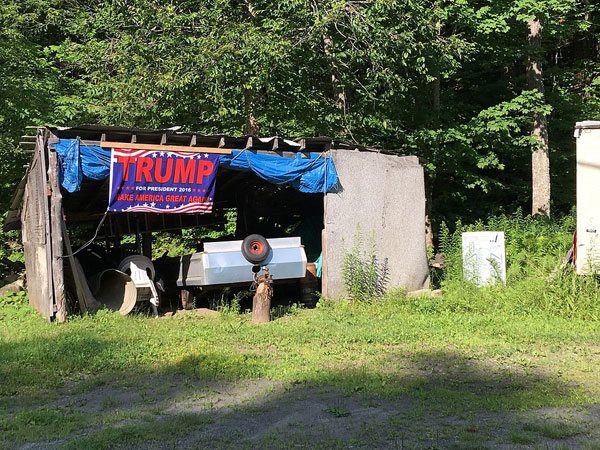
February 16, 2018; New York Magazine
New York magazine offers a truly offensive view of rural America’s role in Congressional gridlock. Since President Trump’s surprise victory, coastal journalists have “discovered” rural America and have wrestled to try to “understand” these backwaters and how they can impact US politics. Sadly, old myths die hard.
“Why Rural America Controls the Debates Over Guns and Immigration” purports to explain that rural voters hold the key to both immigration reform and gun control because rural voters are backward yahoos. According to the article, it’s not the National Rifle Association or the Koch Brothers that have bought Congress and state legislators; it’s not cynical legislative machinations that hold Dreamers as hostages to exchange for “the wall.” It’s people who live in rural communities.
While noting the decades of gerrymandering to enhance the power of rural officials, author Ed Kilgore concludes, “Underlying it all are real differences in outlook between different parts of the country, made more important by the distinct institutional features of a constitutional system designed to protect the interests of small, largely nonmetropolitan states.”
Sign up for our free newsletters
Subscribe to NPQ's newsletters to have our top stories delivered directly to your inbox.
By signing up, you agree to our privacy policy and terms of use, and to receive messages from NPQ and our partners.
Sorry, Ed; the values of citizens of rural areas have as much to do with school violence and immigration resistance as do video games. In fact, Kilgore undermines his own argument by citing Ronald Brownstein’s analysis in the Atlantic of the red-blue divide. Alas, the same Ronald Brownstein reported on CNN just one week later that a prosperity gap was the source of the split between Democrats and Republicans. “Observers in both parties agree that the sense of economic displacement in recent years has intensified the long-standing movement toward the GOP among small-town and rural communities initially rooted in unease over cultural and demographic change.” It’s fair to observe that gun-loving nativists did not create the dismal economic prospects that drove them to vote for candidate Trump.
It is true that after years of civic disengagement, rural voters turned out in record numbers to elect the only coastal elitist who showed up in their communities and asked for their votes. So, Trump won and Clinton lost. Beyond that, any generalization about the impact of rural citizens on national politics is just horsepucky. Rural citizens didn’t create the electoral system that permits unlimited campaign donations to state officials who draw Congressional districts to favor entrenched wealth. In fact, rural citizens are the victims of gerrymandering as much as any disenfranchised cohort that ends up in a noncompetitive legislative district.
The Daily Yonder reminds us that rural Americans seem to be the last minority that can be impugned with impunity. In “Review: New Book on Appalachia Takes J.D. Vance Behind the Woodshed,” Jim Branscome welcomes Elizabeth Catte’s new book-length essay written in response to J.D. Vance’s Hillbilly Elegy. Branscome cites a basic fact missed by coastal experts. “Truth be told, large parts of the mountains, and especially towns in the coalfields, are as cosmopolitan demographically as places like New York City with Germans, Hungarians, Poles, Italians, and Greeks, to name a few. Vance doesn’t know it, but all over the Kentucky counties bordering ‘Bloody Breathitt’ there are large populations of African Americans who have lived and worked there since the beginnings of the industrial era. [Author Elizabeth Catte] points out that the fastest growing demographic in Appalachia today are blacks and Hispanics.”
Imagine if Kilgore had decided to blanket-blame African Americans or Latinx persons for school violence and rampant nativism. The liberal readers of New York magazine would be outraged.—Spencer Wells












